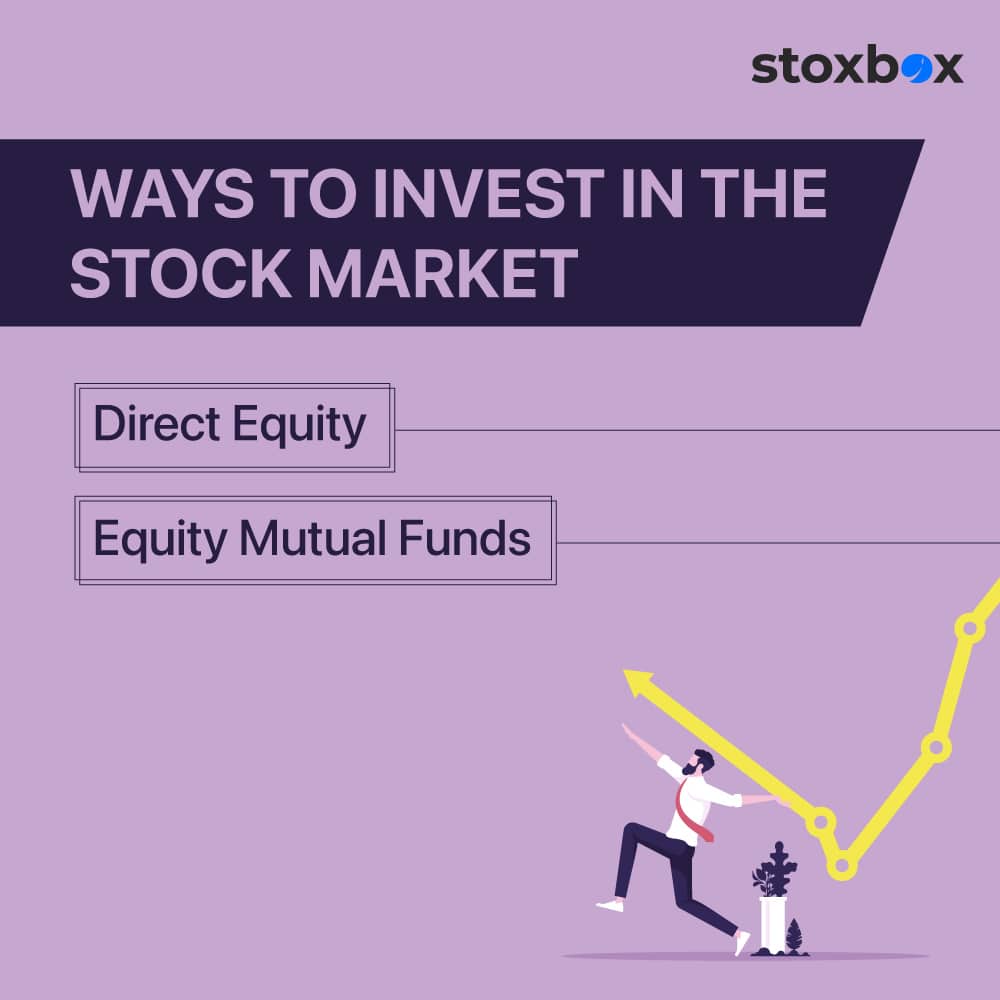Looking for different ways to invest in stock market we have came with few options
Table of Contents
Historically, stock markets have allowed people across geographies to make a fortune, becoming the holy grail of investing. Considering the example of legendary investors like Warren Buffett and Peter Lynch, it is obvious that, for intrepid individuals, there are many ways to invest in the stock market. Indeed, stock markets have, over the years, enabled millions of people, from across the globe, to meet their investment requirements, create wealth, and achieve their goals. For instance, Warren Buffett, who was not born rich, is today valued at 9,930 crores USD, indicating the enormous amount of wealth that people can stand to gain, as long as they remain committed for the long term and take wise decisions. Even in India, if we consider the stupendous growth of the stock market, we can see that the Nifty index grew 14 fold between 1996 and 2021, from a meagre 1107 points to a mighty 15K last year. Therefore, if investors had parked their funds in the index in 1996, they would have seen their wealth grow 14 times in the last 25 years, indicating the enormous potential of the stock market. The question then arises – as an investor, what are the ways to invest in the stock market?
Ways to invest in the stock market

Direct Equity
If you are an investor who wishes to go the stock market route to grow your wealth, beat inflation, and participate in the expansion of the economy, there are two ways for you to ideally take the next step. The first of the two major ways to invest in the stock market is to go the direct equity route. Under this route, you can start investing in the stock market without going through investment vehicles like mutual funds. As a newbie investor, you can avail the help of stock brokers, who enable you to buy and sell stocks and trade on a regular basis. There are various major stock brokerage firms which can either allow you to execute trades yourself or even conduct trades on your behalf, based on your investment profile.
Alternatively, you can also undertake direct equity investment via applications like Stoxbox. Let us consider the example of 25 year old Piyush, who began his stock market journey after downloading a similar app. With real-time information on stock movements, as well as in-depth analysis of the market, the app he chose has helped Piyush invest almost 5 lakh rupees over just the past one year. With the app, he has access to pre-set watch lists, based on his stock interests, and he can take investment decisions in a matter of seconds. He is also able to keep a finger on the pulse of the market as he can easily open his app and check the movements whenever he wants to do so. Further, such apps do not charge any fee for the trades or the underlying advice being offered, making it a win-win solution for individual investors who have a good understanding of the market.
In recent times, the influx of such trading applications have made stock market investments easier and more accessible to lay people, prompting many new age investors to dip their toes in the stock market and try their luck at earning handsome returns. However, one thing to remember here – it is important to avoid bias like greed and fear, when investing in the stock market. If there is one thing you should know, it is that markets are, inherently, volatile in nature. Therefore, don’t panic when markets crash or show a downturn. Instead, utilise these opportunities to boost your holdings and wait for the tide to turn before you sell your stocks and book profits.
Equity Mutual Funds
If you are an investor who does not wish to enter the stock market directly, then you can choose the second option from the common ways to invest in the stock market – which is through investment vehicles like equity mutual funds. Equity mutual funds pool the money from a group of investors and undertake investments which are guided by the underlying philosophy as well as the expertise of the professional fund manager handling your funds. Based on your risk profile, investment horizon, return requirements and financial goals, you can choose from a wide variety of equity mutual funds and then sit back as you enjoy the power of compounding.
Equity mutual funds are a great way to invest in the stock market as you need not track the market regularly. For a commission, you can build a portfolio which will be managed by expert professionals focused on helping you gain the maximum returns. Equity mutual funds also offer tax benefits and allow you to invest through either the lumpsum or the systematic investment plan route, making it an excellent option for passive investors.
Now that you know the ways to invest in the stock market, start your journey right away and watch your wealth grow over the years.
Frequently Asked Questions
What are the essential steps to start investing in the stock market?
To begin, open a Demat and trading account, understand basic stock market concepts, research stocks, and set clear investment goals aligned with your risk tolerance.
Is it necessary to have prior knowledge before investing in the stock market?
While not mandatory, understanding basic stock market principles and conducting research or consulting financial advisors is highly recommended for informed decision-making.
How can a beginner identify the right stocks to invest in?
Beginners should focus on fundamentally strong companies, evaluate financial ratios, and consider sectors with growth potential. Tools like stock screeners and professional research reports can also be helpful.
What is the role of a broker in stock market investments?
A broker facilitates the buying and selling of stocks on your behalf and provides trading platforms, market insights, and support for your investment journey.
Should beginners focus on long-term investments or short-term trading?
Beginners are generally advised to focus on long-term investments as they are less risky and allow time for compounding, whereas short-term trading requires more expertise and involves higher risks.
How much money is required to start investing in the stock market?
There is no fixed minimum; investors can start with as little as ₹100 or ₹500 depending on the stock price or investment vehicle like ETFs.
eWhat are the risks involved in stock market investments?
Risks include market volatility, economic downturns, and company-specific issues. Diversification and thorough research are key strategies to mitigate these risks.
Your Wealth-Building Journey Starts Here

You might also Like.
No posts found!
